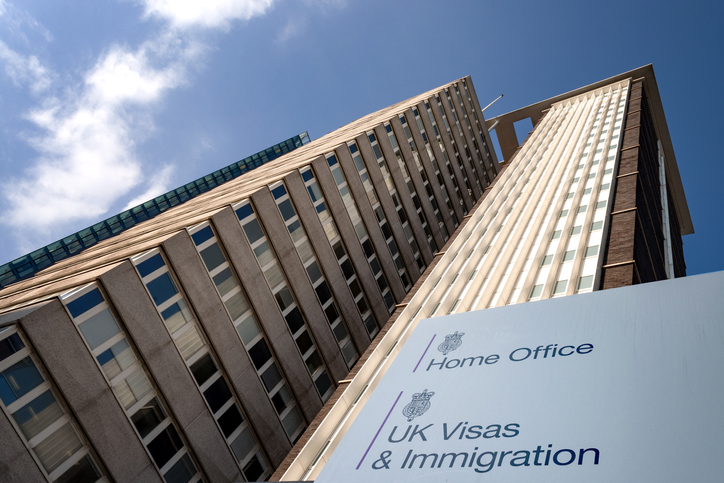Increase in Asylum applicants seeking Permission to Work
An increasing number of Asylum Seekers are being granted permission to work before their claims for Asylum are being processed due to Home Office delays.
Asylum seekers in the UK are not normally allowed to work whilst their claim for asylum is considered by the Home Office. However, the Immigration Rules state that the Home Office may grant permission to work to asylum seekers whose claim has been outstanding for more than 12 months where the reason for the delay is out of their control. Under this policy, those allowed to work are restricted to performing jobs that are on the shortage occupation list, which can be found here.
However, being granted a right to work does not change their immigration status and there is no guarantee that asylum seekers will be successful in their asylum claims.
Home Office caseworkers will consider a number of factors when reviewing an application to work, amongst others, these include:
- Delay – applications must be considered where the delay is not the applicants’ fault;
- Criminality – asylum seekers convicted of criminal offences must not be granted permission to work if a decision on their asylum claim is delayed and the outcome of prosecution is awaited; and
- Dependents – there is no provision for caseworkers to extend the permission to work to the applicant’s dependents.
A backlog in the Home Office processing of Asylum Claims has meant that there is now an increased number of asylum seekers being granted permission to work before their claims for Asylum have been processed.
According to a recent article published by Sky news, around 91,000 Asylum seekers in the UK waited more than one year for an initial decision of their claim at the end of June 2023 – this is almost an increase of 80% from November last year and more than 52% of the entire backlog of asylum claims at the Home Office.
The “permission to work” policy has faced backlash from Karl Williams, Deputy Research Director at the Centre for Policy Studies who states that “knowing they can get the right to work simply by waiting long enough makes Britain more attractive to migrants”. The government itself has acknowledged that Britain’s wider immigration policy could be undermined if migrants bypassed work visa rules by lodging unfounded asylum claims in the UK in turn adding to the current backlog of claims to be processed by the Home Office.
The Home Office suggested as a result of increased pressure on the asylum system, they have taken immediate action to speed up asylum application processing times and cut costs for tax-payers but despite this, UK Visas and Immigration (UKVI) currently advertise on their website that applications “will be decided as soon as possible” and no time frame is given.
If an employer wishes to recruit an eligible asylum migrant, they should ask to see form ASL.4264, which is a letter issued to the applicant from UVKI which confirms the conditions of their permission to work. This letter also advises the applicant how to obtain their national insurance number. If an employer has concerns about the legitimacy of an ASL.4264, then they should contact the Croydon Contact Centre to verify an applicants’ permission to work.
Employers should always consult Home Office guidance prior to employing a foreign national who is not settled in the UK. Even if an asylum seeker has been granted the right to work, there may be restrictions or conditions on the type of employment they are legally allowed to undertake.
Asylum seekers are required to apply for a Biometric Residence Permit (BRP) as part of their asylum application, but this will not be issued until the applicant is granted permission to stay in the UK.
The Immigration Rules also make it clear that any permission to work granted will only be valid until the claim has been determined and any appeal rights have been exhausted.
It is important for applicants to note that UK Visas and Immigration (UKVI) recently updated their “Permission to work and volunteering for asylum seekers” policy on the 6th November 2023 to update the contact details for where applications for permission to work should be sent to.
All applications for permission to work from asylum seekers or failed asylum seekers should be made in writing to UKVI and should include:
- Full name of the applicant, date of birth and nationality;
- Home Office reference number;
- Statement setting out the request for permission to work; and
- Contact details for the applicant and legal representative (if they have one)
Where an applicant sends their application will now depend on what application is being made, generally all applications must be submitted to the Permission to Work Team whose address is outlined below:
Permission to Work Team
Level 0
Capital Building
Old Hall Street
Liverpool
L3 9PP
Any applications for permission to work at a UKVI reporting centre should be made to the Asylum Caseworker Team at the above-named address. Applicants may also request a permission to work is submitted as part of a pre-action protocol letter or judicial review application relating to another matter, an applicant would need to make a formal application in writing to UKVI for their request to be considered.
It is important to note that UKVI will not consider an application for permission to work unless it has been submitted properly in accordance with the policy, a copy of which can be found here.

